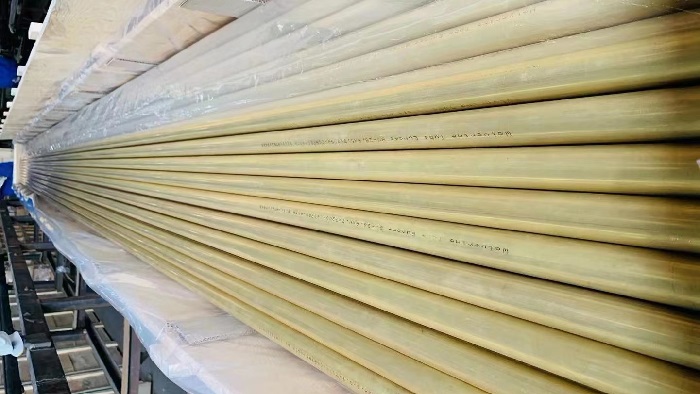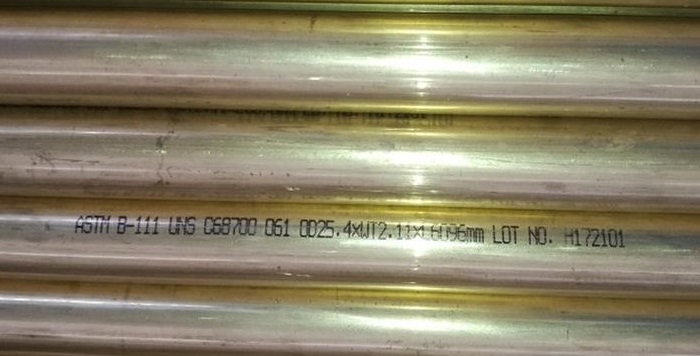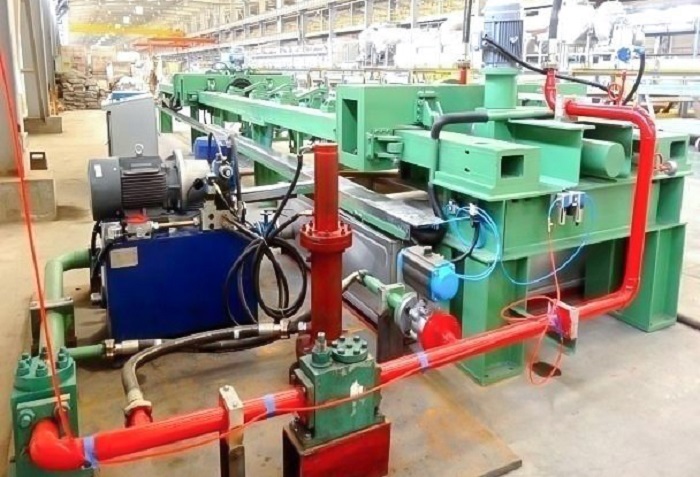Categories
- Technical & Application (25)
- Steel Tubing (20)
- Alloy Tubing (8)

ASTM B111 UNS C68700 arsenical aluminum brass seamless tubes supplied to Holland, OD19.05mm x WT2.11mm x L=7.62m, sea-worthy wooden case packaged.
Condenser tubes made of ASTM B111 UNS C68700, also known as “aluminum brass”, offer exceptional corrosion & erosion resistance, thermal conductivity, and mechanical properties, making them ideal for a wide range of heat exchange applications. UNS C68700 is an alloy containing nominally 77.5% copper, 2% aluminum, and 20.5% zinc with a trace of arsenic (0.04%) as an inhibitor. Brass are basically copper-zinc alloys. Aluminum additions incorporate an important constituent of the corrosion film onto a brass: aluminum oxide, which markedly increases resistance to impingement attack in turbulent high-velocity saline water. A trace of arsenic is added to the aluminum brass to “inhibit” its susceptibility to dezincification. Hence, tubes made of arsenical aluminum brass ASTM B111 UNS C68700 are frequently used for marine condensers and heat exchangers in which impingement attack by the high-velocity cooling water is likely to pose a serious problem.

Standard marking on the ASTM B111 UNS C68700 seamless tubes, supplied to Riyadh, Saudi Arabia.
The chemical composition requirements for ASTM B111 UNS C68700 are as follows:
The ASTM B111 UNS C68700 seamless tubes shall be furnished in annealed condition with the temper designation of O61:

The bright annealing facilities for copper alloy tubes in a factory located in Gansu province, China.
The arsenical aluminum brass ASTM B111 UNS C68700 has several international equivalent grades: HAL77-2 (China), CZ110 (BS), CuZn20Al2 (DIN), C6870 (JIS H). The tubes shall be bright annealed at a temperature between 425°C [800°F] and 600°C [1100°F].

Hydrostatic testing facilities for aluminum brass tubes in a workshop of SJZ Metalsin.
For seamless tubes made of ASTM B111 UNS C68700, the following inspections and tests shall be performed to ensure compliance with the standard and the desired quality: chemical analysis, visual inspection, dimensional examination, tensile test, grain size examination according to ASTM E112, expansion test, flattening test, residual stress test, eddy current test, hydrostatic test, pneumatic test.